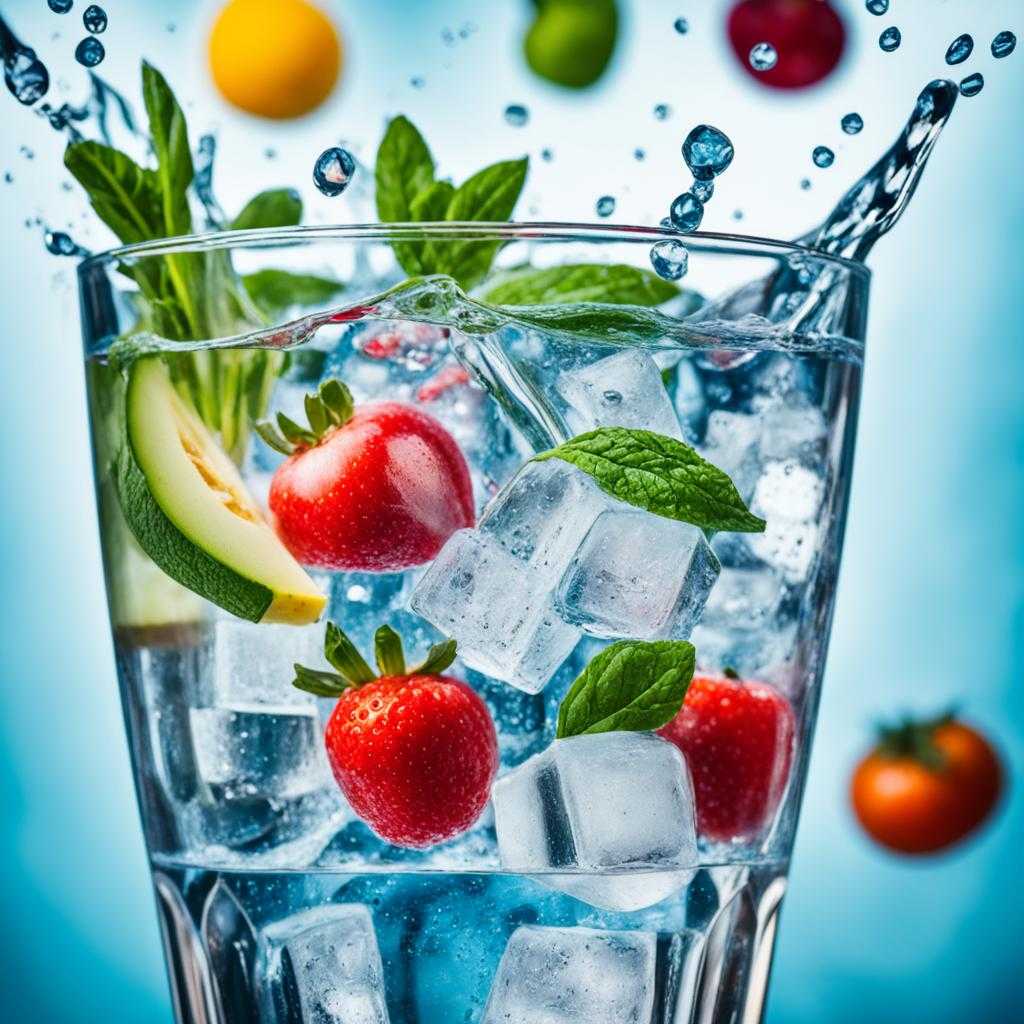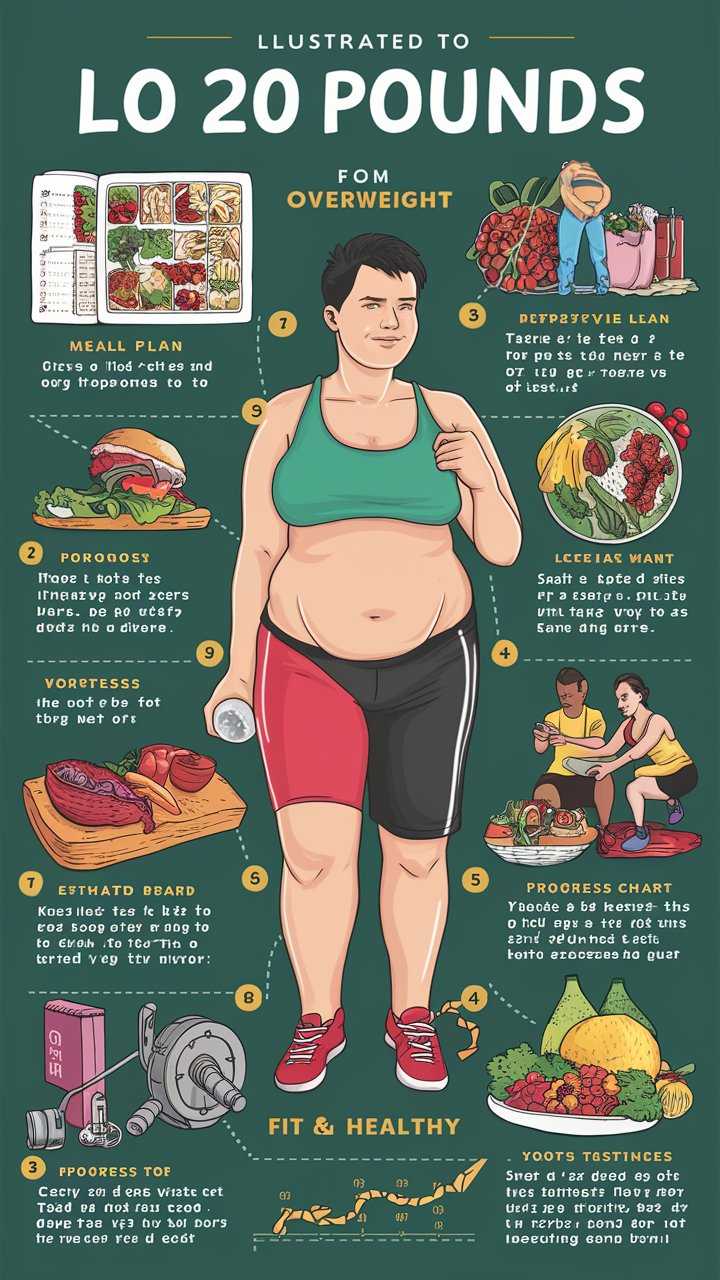Effective Strategies to Weight Lose Fast in America
Discover proven strategies for rapid weight loss in America. Learn effective techniques to shed pounds quickly and safely, backed by expert advice and scientific research.
In the United States, many people are looking to lose weight for better health. Losing weight can be tough, but the right strategies can help. It’s important to aim for lasting changes, not quick fixes, for real success.
Key Takeaways
- Develop sustainable habits for long-term weight loss success
- Set SMART (Specific, Measurable, Achievable, Relevant, Time-bound) goals and celebrate your achievements
- Even modest weight loss can provide significant health benefits
- Reduce intake of ultra-processed carbs and sweets to support weight loss
- Increase protein and plant-based foods to control appetite and boost metabolism
Implement Long-Term Lifestyle and Behavior Changes
Experts say lasting weight loss comes from focusing on lifestyle changes, not just diets. Making healthy habits can lead to better and lasting weight loss.
Focus on Developing Sustainable Habits
Think of weight loss as a long-term lifestyle change, not a short diet. Add regular exercise and plan healthy meals you can keep up with. These habits help you keep a healthy weight without quick fixes.
Set SMART Goals and Reward Yourself
Setting SMART goals can help you stay on track with weight loss. Break your goals into smaller steps to stay motivated. Celebrate your wins to keep up your motivation and focus on lasting weight loss.
“The key to successful weight loss is not a quick fix, but rather a lifelong commitment to healthier eating and physical activity habits.”
Focus on lasting lifestyle changes and behavior modification for sustainable weight loss. Set SMART goals and celebrate your progress to stay motivated and on track.
Focus on the First 5% to 10% Weight Loss
Many people think they need to lose a lot of weight fast for it to matter. But experts say that’s not the best plan. They suggest focusing on losing the first 5-10% of your body weight instead.
This approach may seem less intense, but it’s powerful. Losing 5-10% of your weight can greatly improve your health. It can lower your risk of type 2 diabetes, heart disease, stroke, and some cancers.
Reaching these early weight loss goals can boost your confidence. Seeing the positive changes can motivate you to keep up with healthy habits. This encourages you to aim for even more progress.
“The first 5-10% of weight loss is where we see the most dramatic improvements in health markers like blood pressure, cholesterol, and blood sugar levels.”
Changing your focus to modest weight loss can lead to lasting success. Instead of worrying about losing a lot, celebrate your small victories. Take pride in the big health benefits you’re gaining.
| Health Benefit | Impact of 5-10% Weight Loss |
|---|---|
| Type 2 Diabetes Risk | Reduced by 58% |
| Blood Pressure | Decreased by 5-20 mm Hg |
| Cholesterol | LDL decreased by 5-10% |
| Sleep Apnea | Improved by 30-50% |
Reduce Intake of Ultra-Processed Carbs and Sweets
Reducing ultra-processed carbs and added sugars can really help with weight loss. Studies show these foods can slow down weight loss and harm your health.
Items like white bread, pasta, chips, and sugary snacks and drinks are full of refined grains and added sugars. These can make your blood sugar go up, leading to more calories and fat. But, eating whole, fiber-rich carbohydrates like fruits, veggies, and whole grains can make you feel full on fewer calories. This helps with weight loss.
“Reducing your intake of ultra-processed carbs and added sugars is one of the most impactful things you can do for your overall health and weight management.”
Here are some easy tips to cut down on processed carbs and added sugars:
- Choose whole-grain breads, pasta, and rice over the refined kinds.
- Drink fewer sugary drinks like soda, juices, and sweet coffee or tea.
- Go for fresh or frozen fruits and veggies instead of canned or processed ones, which often have more sugars.
- Snack on nuts, seeds, and plain Greek yogurt instead of chips, cookies, and other processed carb-rich snacks.
- Always check nutrition labels for products with less added sugars and refined grains.
By making these easy changes, you can greatly cut down on ultra-processed carbs and added sugars. This puts you on the way to lasting weight loss and better health.
Eat More Plants

One of the best ways to lose weight is to eat more plant-based foods. Foods like fruits, vegetables, and other plants are great for weight loss. They also give you important nutrients that boost your health.
Unlock the Power of Produce
Fruits and vegetables are key to a healthy diet. They are low in calories but high in fiber. This makes you feel full without eating a lot. Studies show that eating more fruits and vegetables helps with weight loss.
Experts say you should eat 5-9 servings of fruits and vegetables every day. This helps you get all the fiber, vitamins, and minerals you need for weight loss. These foods make you feel full, which helps you control your calorie intake and reach your weight loss goals.
- Fruits and vegetables are high in fiber, which helps you feel fuller on fewer calories.
- Increasing fruit and vegetable intake is directly correlated with enhanced weight loss.
- Experts suggest consuming 5-9 servings of fruits and vegetables per day to optimize nutrient density and weight loss benefits.
By trying to eat more plants, you can use a plant-based diet to help with weight loss. Add a variety of colorful fruits and vegetables to your meals and snacks. This way, you’ll get many health and weight benefits.
“Eating a plant-based diet high in fruits and vegetables is one of the most effective strategies for achieving sustainable weight loss.” – Nutrition Specialist, Jane Doe
weight lose fast
Eating more protein can help you lose weight quickly. Protein is key for controlling hunger and keeping muscle mass, which are vital for losing weight and keeping it off.
The Power of Protein
Protein affects hunger hormones like ghrelin and leptin, making you feel full longer and cutting down on cravings. This can lead to eating fewer calories, which is important for losing weight. Also, enough protein while eating fewer calories helps keep muscle mass, which is good for your metabolism.
Experts say aim for 25-30 grams of protein at each meal, especially for women over 50 who need more. Adding a high-protein diet to your weight loss plan can change the game. It makes you feel full and helps keep your muscle mass.
| Protein Source | Grams of Protein per Serving |
|---|---|
| Grilled Chicken Breast | 27g |
| Salmon Fillet | 23g |
| Greek Yogurt | 17g |
| Eggs | 6g per egg |
| Lentils | 18g per cup |
Adding different high-protein foods to your meals and snacks helps control hunger and keep muscle mass. This makes it easier to lose weight fast and keep it off.
“Protein is the most important macronutrient for weight loss because it helps you feel full and preserves muscle mass during calorie restriction.”
A balanced, high-protein diet, along with other healthy habits, can help you reach your weight loss goals. It can lead to a healthier, more vibrant you.
Drink More Water

Drinking enough water is key to losing weight effectively. It helps boost your metabolism and control cravings. These are important for managing your weight.
Hydration and Metabolism
Our bodies are mostly water, and keeping it at the right level is crucial. Not drinking enough can slow down your metabolism. This makes it harder to lose weight. Drinking enough water supports your metabolism and helps with weight loss.
Curbing Cravings and Appetite Control
Drinking water before meals can help control your hunger and reduce cravings. Sometimes, we think we’re hungry when we’re actually thirsty. This can lead to eating more than we need. Staying hydrated helps you tell the difference between hunger and thirst. This makes it easier to eat healthier and keep your calorie intake in check.
Experts suggest drinking 8 ounces of water 8 times a day. Or, drink 2 cups of water before each meal. This habit can help you lose weight and improve your health.
“Drinking water is one of the easiest and most effective ways to support your weight loss goals. It’s a simple yet powerful tool in your arsenal against cravings and sluggish metabolism.”
| Benefits of Staying Hydrated | Impact on Weight Loss |
|---|---|
| Boosts metabolism | Increases fat-burning potential |
| Reduces feelings of hunger and cravings | Helps control calorie intake |
| Supports cognitive function and energy levels | Enhances exercise performance and recovery |
Make water a priority in your daily life to help with weight loss. It’s not just good for losing weight, but also for your overall health and well-being.
Eat a Well-Rounded Breakfast
Starting your day with a protein-rich, balanced meal can change your weight loss journey. Skipping breakfast often leads to poor diet quality and nutrient gaps, which can hurt your weight loss goals. A well-rounded breakfast helps keep your blood sugar stable, boosts energy and brain function, and keeps you full until lunch.
Embrace a Balanced Approach
To help with weight loss, make your breakfast a mix of protein, healthy fats, and complex carbohydrates. This mix helps control hunger and keeps energy steady in the morning. Here are some good breakfast ideas:
- Greek yogurt with fresh berries and a sprinkle of nuts or seeds
- Whole-grain toast with avocado and a poached egg
- Oatmeal made with milk or plant-based milk, topped with nut butter and sliced banana
- Scrambled eggs with sautéed vegetables and a side of whole-grain toast
Choosing a protein-rich, balanced breakfast sets you up for a successful day. It helps control cravings and supports your weight loss goals.
| Breakfast Item | Protein (g) | Healthy Fats (g) | Complex Carbs (g) |
|---|---|---|---|
| Greek Yogurt with Berries and Nuts | 20 | 12 | 30 |
| Whole-Grain Toast with Avocado and Egg | 18 | 14 | 25 |
| Oatmeal with Nut Butter and Banana | 12 | 10 | 35 |
| Scrambled Eggs with Vegetables and Toast | 22 | 8 | 20 |
Adding a protein-rich, balanced breakfast to your daily routine helps you succeed in losing weight. A good breakfast balances your hunger, boosts energy, and gives you the nutrients you need for health and wellness.
“Breakfast is the most important meal of the day, and a well-balanced one can make all the difference in your weight loss efforts.”
Stand Up and Move More
Structured exercise is key for losing weight, but moving more every day helps too. This is called non-exercise activity thermogenesis (NEAT). It’s the energy you use doing everyday activities, not just workouts.
Adding more physical activity to your day can boost your calorie burn. Try standing more, taking stairs instead of elevators, and walking during breaks. Studies show that standing instead of sitting can help you lose weight over time.
Boost Your NEAT
- Stand up and walk around during phone calls or meetings.
- Take the stairs instead of the elevator whenever possible.
- Go for a short walk during your lunch break or between tasks.
- Fidget, pace, or stretch while watching television or working at your desk.
- Invest in a standing desk or take regular standing breaks.
Increasing your NEAT can burn extra calories each day. This doesn’t mean you have to change your workout routine much. It’s a simple way to help with weight loss, adding to your fitness plan.
“Non-exercise activity thermogenesis (NEAT) can contribute significantly to daily energy expenditure and may play a key role in weight management.”
Adding more physical activity to your daily life is a great way to increase your calorie burn. It supports your weight loss goals over time. By focusing on NEAT, you can improve your energy use and see progress in your weight loss journey.
Hit the Weights
Adding strength training to your workout plan is key for losing weight and keeping it off. Muscle burns more calories than fat, even when you’re not moving. The “afterburn” effect of strength training also helps boost metabolism as your body repairs muscles after exercise.
Building muscle mass through resistance exercises can increase your resting metabolic rate. This supports weight loss, especially as you age and naturally lose muscle. By focusing on strength training, your body works for you, even when you’re not moving.
The Benefits of Strength Training for Weight Loss
- Increases muscle mass, which burns more calories at rest
- Boosts metabolism through the “afterburn” effect
- Helps preserve muscle mass as you age
- Supports overall weight loss and body composition goals
| Muscle Tissue vs. Fat Tissue | Calories Burned at Rest |
|---|---|
| Muscle Tissue | Approximately 6-10 calories per pound per day |
| Fat Tissue | Approximately 2-3 calories per pound per day |
Adding strength training to your weekly routine boosts metabolism and builds lean muscle mass. This supports your weight loss goals. By focusing on this method, you can make your body work for you, even when you’re not exercising.
“Strength training is the most effective way to build and maintain muscle mass, which is essential for a healthy metabolism and sustainable weight loss.”
Don’t Go Overboard

Finding a balance is key when trying to lose weight. Cutting calories too much or exercising too hard can lead to burnout. This can cause muscle loss and slow down your metabolism. Instead, aim for strategies that include enough rest and good nutrition.
Manage Stress and Prioritize Recovery
Managing stress is as crucial as your workouts for sustainable weight loss. Too much stress can make you crave more food, which can ruin your diet. Try activities like meditation, yoga, or being outdoors to help you recover and adjust to losing weight.
- Use relaxation techniques like deep breathing, mindfulness, or gentle stretching every day.
- Try to get 7-9 hours of good sleep each night to help muscles repair and balance hormones.
- Don’t overdo it by taking rest days and listening to your body when it’s tired or feeling overtraining.
Remember, recovery is as crucial as your workouts. Balancing stress and rest helps you achieve sustainable weight loss without harming your health.
“The goal is not just to lose weight, but to create a lifestyle that supports long-term weight loss and good health.” – Nutrition Expert, Jane Doe
Weight loss is a long-term journey, not a quick race. Focus on stress management and recovery to set yourself up for lasting success. This way, you avoid the dangers of overtraining or extreme dieting.
Conclusion
To achieve sustainable weight loss in America, focus on making lasting lifestyle changes. Aim for modest weight loss goals and cut down on ultra-processed carbs and sweets. Eating more plants and proteins is also key.
Drinking plenty of water, eating a balanced breakfast, and moving more are vital. Adding strength training to your routine can also help. These steps are crucial for a successful weight loss plan.
For lasting results, balance stress with recovery. This holistic approach improves health and wellbeing. It takes patience, consistency, and a commitment to healthy habits for long-term success. With these strategies, you can start a journey to a healthier life.
Remember, losing weight works best when it fits your life. Celebrate your small wins, stay motivated, and trust the process. This approach will help you reach your health and fitness goals.









